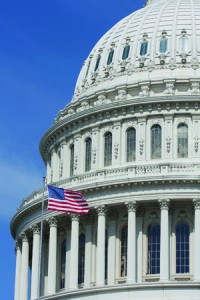© 2017 by Steve Brawner Communications, Inc.
American democracy works well when what’s best for the country coincides with what’s best and easiest politically for elected officials. It also can work when elected officials act sacrificially in the nation’s interest regardless of the politics.
Neither currently is the case with health care reform.
Arkansans following that issue might be suffering from health care reform-induced whiplash. On July 15, Senate Majority Leader Mitch McConnell said he would delay action on the Senate health care bill because one of his needed votes, Sen. John McCain, had undergone surgery. (We now know he has brain cancer. God bless John McCain.) On Monday, McConnell said the Senate simply would try to repeal Obamacare, with the change taking effect two years later to give lawmakers time to consider an alternative. Arkansas’ Sens. Tom Cotton and John Boozman said they favored that approach. President Trump said lawmakers should let Obamacare “fail,” and then pick up the pieces. Then on Wednesday, Trump did a 180, summoned Republican senators to the White House and urged them to pass a replacement, which as of this writing they are trying to do.
There’s no question that change is what’s best for the country. The health care system consumes 18 percent of America’s gross domestic product – twice as much as many countries – but produces no better results. But finding solutions the right way isn’t advantageous politically, and it surely isn’t easy.
Here’s what’s best for the country. The parties should agree that the status quo is broken, and they should resolve to fix it. Clear, bipartisan solutions should be sought with the help of health care providers, insurers and patients. The process should take time, actually years, as alternatives are considered and tested at the state level. The final package would acknowledge that perfection is impossible and that the solution requires either less government involvement and fewer services, or more services funded by higher taxes. The process would be messy and contentious, but ultimately a law would pass with support from the centers of both parties. That way, both parties would have a stake in its success and neither would try to make it fail.
None of those things is happening for reasons that run much deeper than the health care debate. The country is deeply divided, a reality the parties both reflect and amplify, so bipartisanship is unlikely unless the issue is noncontroversial – in other words, somebody has bombed us. Because so many states and districts are solidly red or blue, congressional representatives worry not about the general election but about the party primaries, when a partisan sliver of the electorate can vote them out. Because elections occur every two years, the campaigning never stops and action must be taken quickly, making a deliberate approach difficult. Voters have been propagandized into believing solutions could be painless if only the other side would capitulate. And laws can’t be passed by a centrist bipartisan coalition because there are so few centrists left in Congress.
For all of those reasons, probably the easiest thing that can happen politically is what we’re seeing now. Republican leaders just want to quickly pass something – anything – that will let them tell their voters they repealed Obamacare. If they can’t, they want to make enough of a show about it so they can say they tried, and then blame the Democrats. Democrats are happy to let them do this because they know from experience that the health care system is a mess, and that the party in power that tries to fix it will be blamed when it can’t.
So, the health care system’s problems will be addressed only when it becomes easier and more advantageous politically to do it right than to do it wrong, or when elected officials worry less about the politics and more about health care. Unfortunately, neither is the case, yet.
Related: Repeal, and then what?
